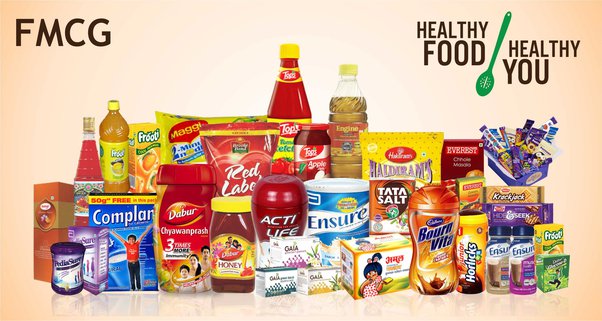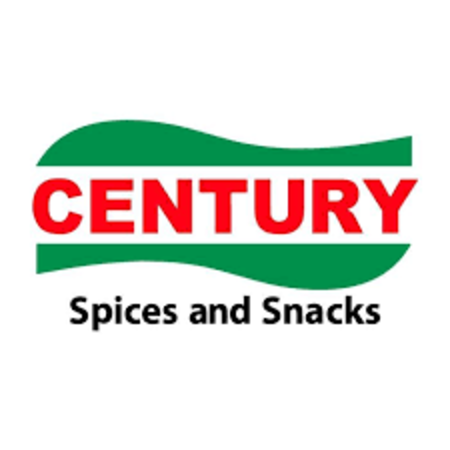It is an unhidden fact that Nepal’s FMCG companies are prospering widely, and today, it amounts to more than a billion dollars. This FMCG industry grows remarkably at 20% annually, while Nepal’s economic market gradually increases from 3% to 4%.
Yes, this rate has given the FMCG industry a huge opportunity to expand its markets. People are also gradually changing their lifestyles and choices from urban to rural areas; hence, their product expansion is also seemingly close to being a brand.

Nepal’s FMCG market has improved quite a lot compared to a few years back. Though urban areas have been the central consuming portion of this market, there is a lot of scope for growth in rural areas. Today, the local FMCG industry, such as alcohol, dairy, tobacco, paper, and juice, has flourished much more in Nepal. Similar to it, several multinational companies like Unilever, Carlsberg, Coca-Cola, PepsiCo, ITC, and Dabur also have significant value.
Key FMCG Companies in Nepal
FMCG (Fast-Moving Consumer Goods) Nepal is an attractive sector with quality products and huge investments. For those unknowns, FMCG is a product that has a quick turnover and at a relatively low cost. They include many effects depending on their demands and are often purchased in small quantities.
People also read: <<Organic Spices Found In Nepalese Local Market>>
Again, FMCG markets contain all sorts of products, from perishable, non-perishable, durable, and non-durable goods. Below are some lists of the leading FMCG companies in Nepal.
Chaudhary Group (CG)
Known chiefly for its core FMCG segment of noodles, Chaudary Group initially started as a textile business in 1933. Today, it is the largest business conglomerate in Nepal, with over 45 companies and an investment outlay totaling USD 1 billion. Its other focus sections fall under CG Foods, CG Beverage, CG Brewery, and CG Packaging.
According to the sources, CG has two manufacturing units in Kathmandu and Nawalparasi. Well, a fun fact, they produce around 1,350 packets of noodles per minute. Apart from it, their top product is Wai Wai noodles, and they have acquired a 50 percent share in the domestic noodles market.
Yes, Wai Wai has now become a brand and solely pulls an annual turnover of around Rs 6 billion.
Century Group

Century Group supports long-term growth and sustainability and is dedicated to its role as a responsible corporate conglomerate. They believe the communities in which we live and work are at the heart of their success and are always eager to give back to them through various Corporate Social Responsibility initiatives. It hails as a leading FMCG for spices and foods in Nepal.
Century is driven by a constant desire to create new and exciting products that will keep them at the top. Its primary goal is maintaining brand trust and loyalty to deliver only the best. Today the brands of Century Group are most liked by consumers in Nepal.
Vishal Group
Vishal Group is a tremendous force in welcoming some of the world’s leading and favorite FMCG brands to Nepal. Well, their sector focuses on personal care, health food drinks, confectionery, female hygiene, and household, to name a few.
With eight major business sectors, Vishal Group handles its FMCG distribution through United Distributors Nepal. Today, they work alongside 10 world-famous FMCG companies and represent several top brands like Amul, Britannia, Ferrero, Linc Pens, P&G, United Biscuits, and many more.
Dabur Nepal
Initially originated from India, Dabur Nepal is the branch of the Dabur that originated from there. Established in 1989, it is also one of the leading companies in the FMCG market. Not to mention, they are known as the largest producer of ayurvedic and natural health products.
Similar to CG, this company has wings in several sectors, such as health care, personal care, and home care. Hence, some of its other product includes Real Juice, Dabur Chayawanprash, Dabur Red Toothpaste, Amla hair oil, Dabur Honey, and Glucose- D, among numerous others.
Another fun fact about Dabur Nepal is that they hold a 50 percent market share in the juice category. Today, they have an annual transaction worth Rs 10 billion.
Sharda Group
Like several other companies, Sharda Group has also laid out wings in numerous segments, such as noodles, snacks, biscuits, confectionaries, rice, flour, liquors, homecare items, and soaps. Having been on the business line since 1970, Sharda Group is one of the largest Nepali business houses in the manufacturing and trading of FMCGs.
Today, it is also run alongside Asian Thai Foods (ATF) and has produced various noodle brands like Rum Pum, 2 pm, Preeti, etc. Likewise, it has also shared a joint venture with the Asian Biscuits and Confectionaries (ABC).
Besides, Sharda Group is the national distributor of French distilled beverages. Well, they import 43 brands of products to Nepal.
Unilever Nepal (UML): Leading FMCG Company in Nepal
This multinational company is the sub-branch in Nepal. It started its work in Nepal in 1994 through a detergent powder. They have a company branch in Makwanpur, and their product category ranges from personal care to cleaning products.

Unilever Nepal is best known for its daily essential products in personal care, cleaning agents, beverages, and food segments. Its widely known products include Lux, Lifebuoy, Pepsodent, Close Up, Sunsilk, Clinic Plus, Fair & Lovely, Wheel, Surf Excel, Vim, and so on.
Bhuramal Lunkarandas Congolmerate (BLC)
BLC has been active in the FMCG market as a Chaudary Group (CG) section. Currently, BLC is entirely focused on categories of biscuits, baby food, ready-to-use therapeutic food (RUTF), ready-to-use supplementary food (RUSF), and dairy products.
Together, this company has over 30 varieties of biscuits, and among them, Shree Pashupati Biscuit Industry works as their flagship company. Some of the famous biscuits of this company are Soaltee, Butter Cracker, Top, Marie, Bourbon, and Lemon Puff. Likewise, they are also renowned for their Delight, Delicious, and Seasons Cookies.
Challenges For The FMCG Industry In Nepal
- Mass market and distribution industry: People seek transformations all over rather than some targeted regions; hence, crises, new lifestyles, technology, the Internet, etc. play an essential role.
- Uncertain needs of the consumers and their desire to see changes in the market.
- Market instability and the force of digitalization and globalization have made the market sensitive.
- The widespread availability of spurious products locally has been another concern in the sector.
- Copy of the brands, their name, and products have stirred a long confusion among the consumers.
Detergents, toiletries, tooth cleaning products, cosmetics, etc. The FMCG sector in India also includes pharmaceuticals, consumer electronics, soft drinks, packaged food products, and chocolates. Normally FMCG dominated all the products.
Food, Beverages, and Healthcare are the three major segments and major brands of the FMCG Industry.
